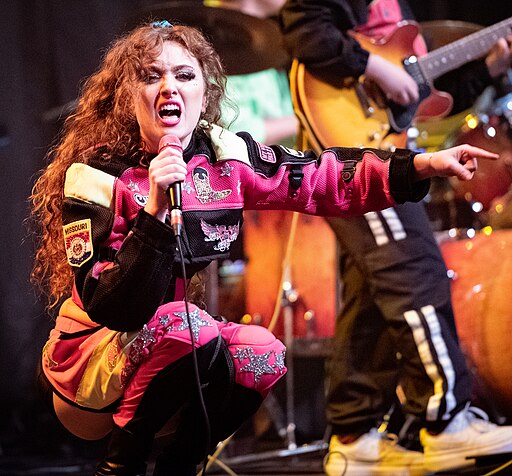You are not that singer’s best friend!: The dangers of parasocial relationships in the music industry
Chappell Roan is easily one of the most popular artists of the year, with her debut album, The Rise and Fall of a Midwest Princess, garnering a litany of standout songs including ‘HOT TO GO!’, ‘Casual’, and ‘Red Wine Supernova’, swiftly followed by single ‘Good Luck Babe!’ becoming a runaway hit. She’s drawn mass crowds at festivals, sold out her tour, is a likely shoo-in for a few Grammy nominations, and has firmly cemented herself as a new, promising music star. Roan is experiencing a career trajectory that many would envy, yet it is not satisfying for her. Not because she isn’t successful enough or she doesn’t like the music that she is making, but because the price of success is parasocial interaction.
On August 19, Roan posted two videos on her TikTok where she showed explicit frustration with the way she had been treated by people since becoming famous, stating: “I’m a random bitch, you’re a random bitch, just think about that for a second”. Whilst some of the behaviour that she has shown opposition to appears ostensibly to be the normal trappings of fame, such as asking for photos or being frequently approached in the street, it is clear that her frustration is the result of dehumanisation, of rendering Roan a conveyer belt of products for people to consume rather than an actual person who has made art that she is proud of and wants to put out into the world.
The normality of parasocial interactions in the world that Roan is forced to exist in as a famous singer means that her humanity will always be seen as secondary to her ability to neatly slot into the image of ‘Chappell Roan’
The modern music industry, and any industry that can act as a vehicle for fame, will lead to the development of parasocial relationships where those who consume the work of an artist believe that they in some way know the individual and are, as a result, entitled to their attention. You expect your friend to stop in the street and talk to you, so you expect the same of the celebrities that you have invested in. Isn’t watching a handful of interviews of someone the same as actually knowing them? These are also patterns that are exacerbated in the modern era when social media, and the internet more broadly, provide almost unlimited access to celebrities in a way that has never really happened before.
The normality of parasocial interactions in the world that Roan is forced to exist in as a famous singer means that her humanity will always be seen as secondary to her ability to neatly slot into the image of ‘Chappell Roan’. It does not matter that ‘Chappell Roan’ is merely a persona that is, to some degree, removed from what she is actually like around her friends and family, the same being true of most celebrities. To fulfil people’s parasocial ideas of her she must always be the persona and never the person. In the modern era where we have more exposure to celebrities than ever, it is very easy to buy into these parasocial relationships. Seeing celebrities joke on press tours or reveal confessional things in their art can be seen as a substitute for actually knowing them. But it is not.
Of course, Roan is not the only one to be dehumanised by parasocial relationships, it is a burden that befalls essentially every celebrity, except maybe Daft Punk who spent their whole career hidden as robots. When you look at the way celebrities have their whole personal lives documented beat by beat in the tabloids and their lives and bodies dehumanised by fans and onlookers, it makes sense that those in the public eye would begin to break. Roan has not gone the Britney Spears/ Björk route of violently lashing out at paparazzi, but can you blame those who do? Even for those who seem conscious of the culture of celebrity before they gain success themselves, it is still hard to deal with when you are the one facing the brunt of the parasocial viewers.
What Chappell Roan may do now is uncertain
Whilst not all responses to this pressure are helpful, many are cathartic. When even Roan’s relatively contained opposition to this parasocial behaviour has led to many people critiquing her and calling her selfish, you begin to understand why so many celebrities shut down, lash out, or develop elaborate ways of staying hidden from the public. It is all coping mechanisms for a parasocial culture that wants them to be eternally present commodities instead of people.
However, this is not why most artists go into their respective industries. They do not want to have to micromanage every aspect of their life to not be harassed, simply to make the music and the art that fulfils them. What Chappell Roan may do now is uncertain. She may release the song ‘Subway’ that she’s played at a few concerts, drop a whole new album, or never release more music ever again. It is sad to think that she may intentionally stop releasing music as a means of self-preservation but, in the end, it is probably far better that this happens as opposed to watching yet another artist break under the pressure of being rendered a commodity. Maybe people will simply wait for the next Chappell Roan-inspired artist and hope that they are far more pliant with the parasocial relationships that they will be confronted with.

Comments